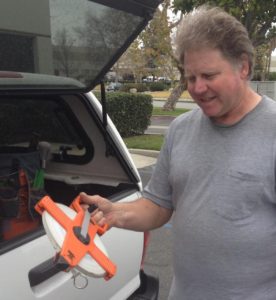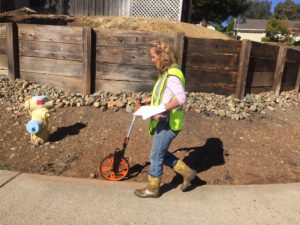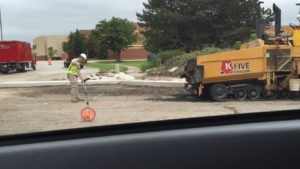How Accurate Are Your Construction Tools?

How long is a hundred feet? While any quality measuring tape should show the intervals of feet and inches to be the same, regardless of the manufacturer, it may surprise you to know that the full answer varies depending on the purpose of your measurement and the tools you use.
A hundred feet when pouring a concrete foundation needs to be so much more accurate than when measuring the width of a property. In one case, the difference of an inch will affect the whole structure. In the other, it might mean one more pass with the lawn mower.
If measuring length is part of your job, you need to make sure you’re selecting the right measuring tools to fit your needs.
Here are a few simple questions to ask before choosing your tool:
- Are you measuring or estimating?
- What are the typical and longest distances you would need to measure?
- Do you use measuring wheels and, if so, over what type of terrain?
- Do you use tape measures and, if so, how long are they? Are they made of steel or fiberglass?
- What scale do you need? What would happen if your measurements were off by an inch or a fraction of an inch?
Most people will have easy answers for these. Some other questions to ask include:
- What environments are you measuring in?
- Are there extreme temperatures?
- Do you need to carry your measuring devices long distances?
What about climbing to tall heights or down into deep locations underground or underwater?

Environmental factors often make a huge impact on the accuracy of a measuring tape, as well as their longevity. Two one-hundred-foot measuring tapes, one steel and one fiberglass, lain on the ground will both accurately measure a hundred feet with very little deviation. But if they’re lying on hot asphalt on a sunny day, the fiberglass tape can expand and stretch if pulled too hard, throwing off your measurement.
So it’s easy to say that steel tape measures are consistently more accurate, regardless of the weather. But steel tapes are not well suited for every task.
Steel is heavy. Carrying a steel tape to the top of a multi-story construction project might be more weight than you want. And steel corrodes, which is why specialty users, like marine biologists , prefer a fiberglass tape for saltwater uses.
And don’t forget that most people select a tape measure based on the lengths they typically measure, not the longest measurement they might need. For many purposes, a short twenty-five-foot steel tape measure will be more than enough. But trying to measure a hundred-foot length by stretching the same tape over four intervals will never be as accurate as using a one-hundred-foot long tape.

For really long measurements, usually hundreds of feet or more, many people will reach for a measuring wheel. You’ve probably seen them in use on city streets and sidewalks.
In terms of measuring over long distances, measuring wheels are a great solution. But they do have the potential for human error if you don’t walk in a straight line or if the ground is uneven.
This is why scale and tolerance for error are such important questions when choosing a measuring tool. The allowable margin for variation when digging fence posts is greater than measuring the frame of a roof.
Knowing what the impact of being off by an inch or a fraction could be on your project is crucial to choosing the right tool and successfully completing the work.
Keson makes the best measuring tools in the world. From measuring wheels to highly accurate short steel tapes, we have a durable and reliable solution that will meet your needs and give you confidence in your measurements. Click here to visit our website and see our product listings.
